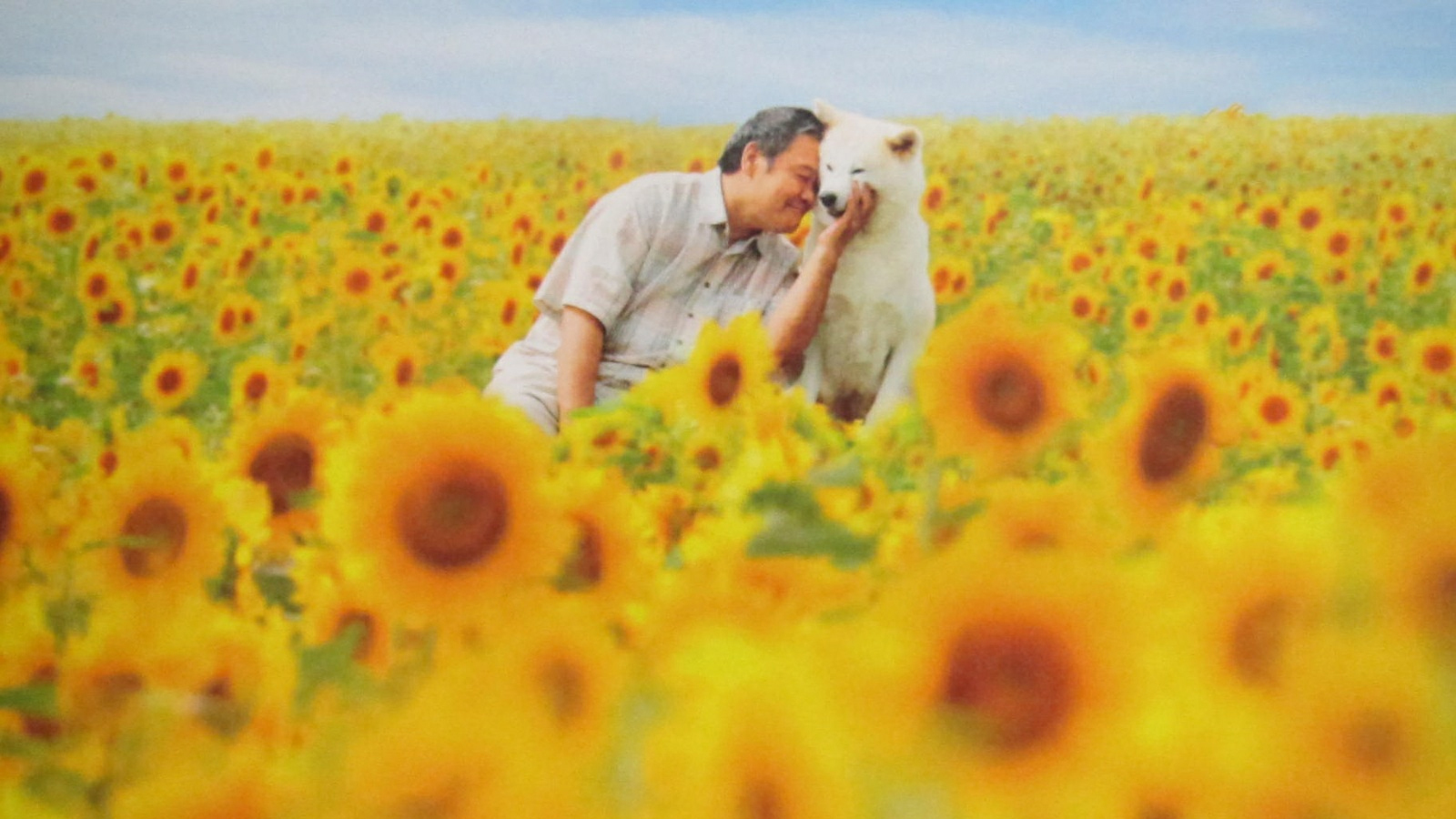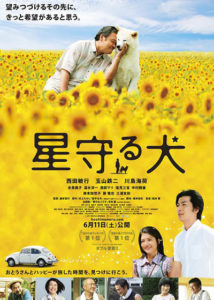[stextbox id=”grey” caption=”Star Watching Dog (2011)” float=”true” align=”right” width=”200″]
Director: Tomoyuki Takimoto
Runtime: 119 minutes
Starring: Toshiyuki Nishida, Testsuji Tamayama, Umika Kawashima
Country: Japan
Rating: Worth a Look (?)
[/stextbox]
About the only thing with even broader appeal than veteran comedian Toshiyuki Nishida in Japanese cinema is the enduring attraction of cute and fluffy animals on film. So one can only imagine the power of combining the two in a film designed to tug at the heartstrings of anybody that has them. Based on the manga Hoshi Mamoru Inn by Takashi Murakami, first serialised in 2008, this epic journey of one dog’s devotions to his master is guaranteed not to leave a dry eye in the house.
Upon finding the body of an unidentified man (Toshiyuki Nishida, A Ghost of a Chance) and his dog, who died six months later, City Hall employee Kyousuke Okutsu (Testsuji Tamayama, Hankyu Railways: A 15-Minute Miracle) feels compelled to find out more about the man. Using his own leave time, he attempts to trace the journey of the man to his final resting place in the mountains of Hokkaido. Joined by teenage runaway Yuki (Umika Kawashima), he soon discovers how many lives the man and his dog Happy touched along the way, and how Happy stayed loyal long after the end.
If you didn’t get just a little bit choked up just reading the synopsis, then it may be time to check your pulse. Star Watching Dog (星守る犬) is designed to sell boxes of tissues, which is strange because they just hand them out in the street in Japan. The tale of the man is never told directly, but rater through the recounted stories of those that he has met along the way. We initially get a bad impressions of the man, as a drunken roustabout who travels with his ill-behaved dog. However, as the story unfolds, it becomes obvious that he is a kind-hearted man who has experienced a run of bad luck. Thankfully, he is not without his faults, as flashbacks to his earlier life with his wife and daughter reveal, and this is a far more compelling character aspect that that of a saint traveling the roads of Japan.
Nishida, typically known for his comic performances in the ongoing Free and Easy films or the works of Koki Mitani, tones down some of his more outlandish traits for what is possibly a more obvious award-worthy performance. Watching him transform from kindly stranger to homeless vagabond is not only a great piece of acting, but also designed to make audiences think about how easily we could all hit skid row in the right (or wrong) circumstances. Given the topsy turvy economy of Japan over the last fee decades, not to mention the more recent hits of the Global Financial Crisis and this year’s natural disasters, this is a poignant point indeed. This is where Star Watching Dog is at its strongest. It may be a manipulative weepy, but it isn’t one without a social message.
There are a few strange narrative choices along the way, however, not least of which is the inclusion of schoolgirl Yuki. While her story parallels aspects of those around her, and serves as a counterpoint to Okutsu’s self-reflection, she is a character best taken in small doses. Her arc is never really tied up either, with the spectre of bad things to come still looming over her when she and her travelling companion eventually part ways. Toshiyuki Nishida’s most powerful moments may be in the last act of the film, but the flashback-within-a-flashback is an odd trick to pull on the audience at a late stage, and perhaps highlights some of the more manipulative aspects of the film. Still these are minor quibbles, as Star Watching Dog will inevitably leave you in a big gooey mess by the time the credits roll.
[stextbox id=”custom”]Star Watching Dog is an emotional roller coaster ride guaranteed not to leave a dry eye in the house.[/stextbox]
Star Watching Dog is playing at the Japanese Film Festival on 19 November (Sydney) and 3 December (Melbourne) 2011 at the 15th Japanese Film Festival in Australia.






